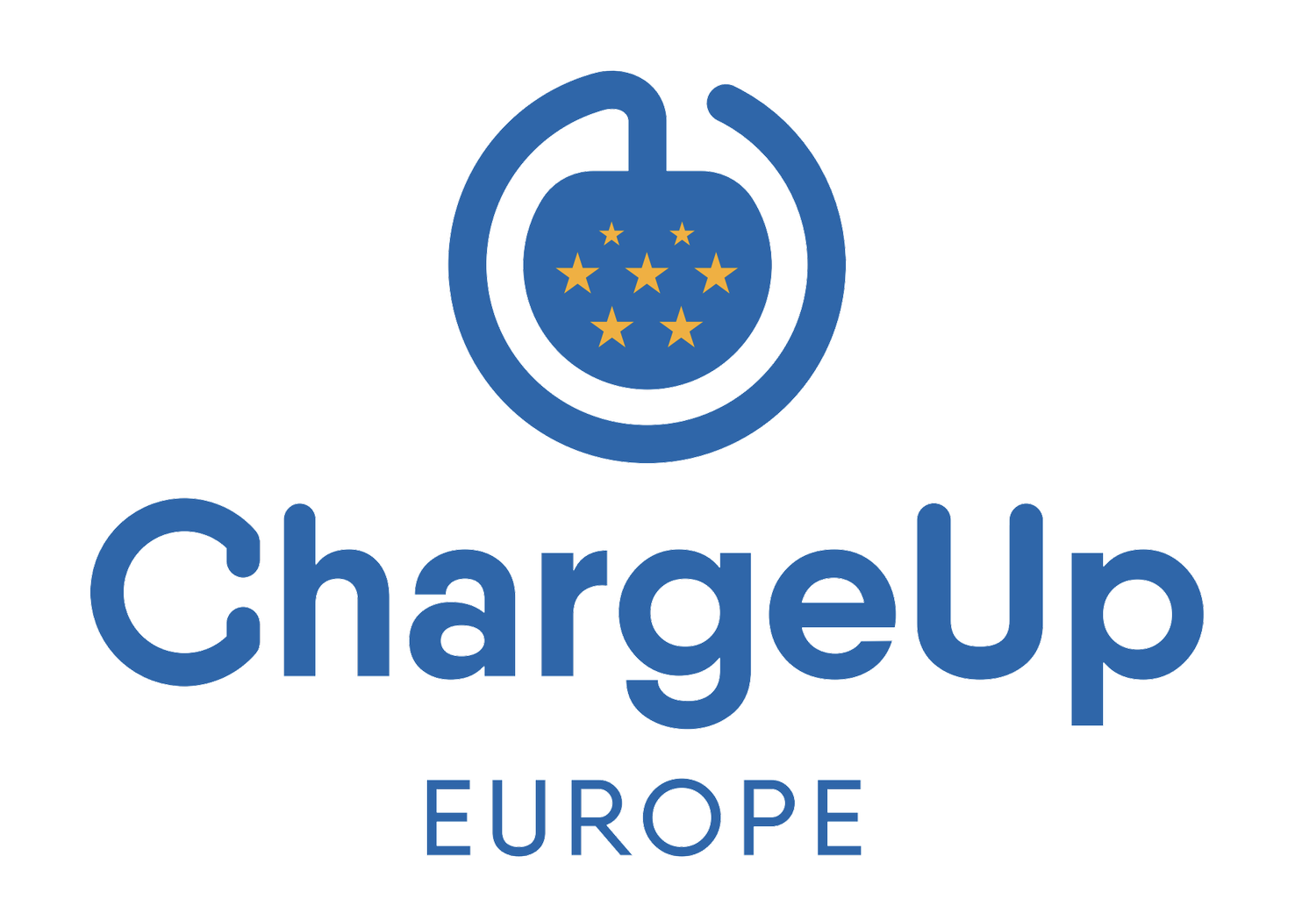
Our Positions
EV charging issues cross many policy areas - Consumer affairs, energy, IT & cyber, automotive, manufacturing, and many more.
Search below or use our filters to find our position papers on the topics of interest to you.
ChargeUp Europe’s response to public consultation on measuring instruments - Technical update of EU rules
ChargeUp Europe’s response to the European Commission’s public consultation on the Measuring Instruments Directive (MID) outlines key technical updates needed to improve EU metrology rules for EV charging.
Our position emphasises:
Harmonisation – A unified approach to measuring instruments across Member States to avoid fragmentation and strengthen the EU Single Market for EV chargers.
Regulatory clarity – Clear, consistent rules across Member States to avoid unnecessary costs for consumers and manufacturers.
Innovation-friendliness – Ensuring regulations remain adaptable to innovation and enables delivering new technological solutions for seamless consumers' experience.
Our key recommendations:
✔ Future-proof standards – Regulations should dynamically adapt to evolving technology and market developments.
✔ Simplified compliance – Streamlining certification and reporting requirements to reduce unnecessary administrative burdens and costs which slow down infrastructure roll-out.
✔ Interoperability – Ensuring uniform technical specifications across all charging networks to enhance accessibility.
✔ Consumer confidence – Maintaining transparency and accuracy in energy measurement to protect users and build trust.
This approach will ensure the regulatory framework supports the continued growth of the European EV charging sector while delivering a reliable, user-friendly experience.
You can read the MID response paper here.
Joint paper: Shared vision on future development of vehicle-to-everything in the European Union
ACEA, ChargeUp Europe, and SmartEN call on policy makers to ensure the effective functioning of the bidirectional charging market and stimulate user uptake.
The green and digital transformation presents both challenges and opportunities for the automotive sector. As the role of EVs expands, the concept of bidirectional charging—vehicle-to-grid (V2G), vehicle-to-home (V2H), and vehicle-to-everything (V2X)—becomes crucial to managing the energy demands of the transition to zero-emissions mobility.
However, number of regulatory challenges hinder the development of effective business models, necessitating in-depth discussions on the roles and responsibilities of emerging market players.
You can read the joint V2X paper here.
Joint Letter to Commissioner Designates
Ahead of the hearings of incoming European Commissioners that begin today, ChargeUp Europe, AVERE, Eurelectric and EuropeOn reiterate the importance of sticking to 2035 zero-emission targets for cars and vans and the intermediate goals starting next year.
The 2035 framework is crucial for investment certainty across Europe’s EV ecosystem. A slowdown would jeopardise Europe’s competitiveness in an increasingly electrified market. Now is the time to double down and accelerate, not slow down or prevaricate.
We call on the incoming Commissioners, particularly Executive Vice President-designates Teresa Ribera and Stéphane Séjourné and Commissioner-designates Wopke Hoekstra and Apostolos Tzitzikostas, to seize the opportunities in e-mobility!
You can read the joint letter here.
Joint Statement on the key role of distribution grids for a competitive, green and resilient Europe
Together with a coalition of 16 other European cross-sectoral associations, we support the call to maintain the distribution grid at the centre of the EU agenda!
In the joint statement by DSO Entity, the coalition explains that Distribution System Operators (DSOs) are central players that contribute to driving the energy and digital transition on the ground for the benefit of all European citizens, enterprises, and industries. The distribution grids are incorporating an increasing amount of renewables and are becoming more customer driven. DSOs are the key technical enablers of the 42.5% EU’s renewable energy target, as more than 70% of renewables will be connected to the distribution grid by 2030. This will see more than 30 million electric vehicles (EVs) on the roads by 2030.
In particular, we support the calls to:
Align EU financing instruments with net-zero targets and DSOs’ needs
Introduce a grid mainstreaming approach to ensure that grid expansion doesn't lag behind.
As the #1 bottleneck to the rapid and widespread rollout of charging infrastructure across Europe, strengthening grid infrastructure is a core priority of ChargeUp Europe.
Policymakers must treat it as such.
You can read the joint statement here, or find it on DSO Entity’s website.
Understanding uptime in the EV charging industry: towards a common methodology
In the European Union, even though uptime is currently only mentioned in recital 12 of Alternative Fuel Infrastructure Regulation (AFIR), at the national and local levels public tenders are increasingly featuring uptime requirements of 97% – 99%. The US and the UK have for their part established regulatory requirements, sometimes including fines (for the UK) when these are not met.
The current landscape for measuring uptime in the EU presents several limitations. Our latest paper outlines the proactive steps the industry is taking to address these limitations, and what policymakers need to know.
This paper:
Supports a better understanding of “uptime”, a key concept that is increasingly under scrutiny, from an industry’s perspective. In layman’s terms, “uptime” refers to the total amount (or percentage) of time a connector is working properly for all EV drivers to use.
Presents the findings of extensive technical work started in September 2023 and 2 expert workshops held by ChargeUp Europe members on a (non-regulatory) common methodology to measuring and reporting uptime, the merits of an approach grounded in operational reality, ensuring a level playing field across the sector and fostering a race to the top on operational performance.
Opens the conversation with EU policymakers, tendering authorities, and the broader EV charging infrastructure community, about the significant limitations of the current tendering and regulatory approaches of uptime.
A common methodology not only ensures a level playing field but also pushes CPOs to deliver optimal uptime, enhancing the charging experience for all EV drivers.
Read the full paper here.
Joint industry recommendations on implementing Right to Plug
The Right to Plug grants anyone the ability to easily install an EV charger at home or at work without unnecessary administrative burdens.
85% of EV charging happens at private locations. Right to Plug is crucial for the continued rollout of EV charging infrastructure. The Energy Performance of Buildings Directive (EPBD) finally acknowledges this right, but swift national implementation is essential.
Our joint recommendations, developed together with AVERE, Eurelectric, EuropeOn and Transport & Environment, provide the roadmap to effectively implementing the Right to Plug on a national level, inspired by successful practices in key Member States.
You can read the full list of recommendations here.
Joint letter- Support for EU CO2 Standards for cars and vans and 2035 zero-emission target
ChargeUp Europe, along with leading European associations, fully supports the EU CO2 standards for cars and vans and the 2035 zero-emission target.
This framework is essential for long-term investments, driving Europe’s industrial future, and achieving decarbonization goals under the Green Deal. If we seize this opportunity, Europe’s e-mobility transition will provide over 580,000 new jobs and significant public health benefits by reducing pollution.
Regulatory stability and legal certainty are the foundation for Europe’s e-mobility ecosystem to accelerate investments and drive a new EU industrial success story. We urge the European Parliament to maintain these standards, invest in comprehensive EU-wide charging infrastructure, and promote zero-emission vehicles.
This will create jobs, improve public health, and ensure Europe remains a leader in e-mobility. Let's collaborate for a zero-emission future.
You can read the full text here.
RED III Implementation Guide
REDIII credit mechanism for EV charging infrastructure: an implementation guide for national public authorities.
The Renewable Energy Directive (RED III) mandates that EU Member States establish a market for credits generated from delivering electricity to Electric Vehicles (EVs) via charging infrastructure, with a deadline of May 21, 2025.
ChargeUp Europe has created a guide to assist public authorities in developing this credit mechanism.
The first part of the guide details the RED III credit scheme and examines current credit systems in France, Germany, Austria, Belgium, and the Netherlands. These existing systems offer valuable insights and experiences for creating future credit mechanisms in other Member States.
The second part provides recommendations for implementing the RED III credit mechanism at the national level, drawing from the experiences of ChargeUp Europe's members with existing national schemes.
The guide aims to facilitate the timely and effective establishment of a credit mechanism that promotes private investment and expands EV charging infrastructure across the EU.
You can read the guide to implementation in English here.


